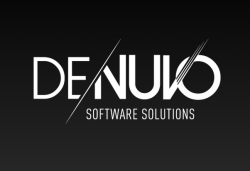How are you on this fine-ish Sunday? Hope the week’s been treating you well, but if not, hope things pick up again next week for ya. There’s a little bit of news of go through this week, so let’s get started shall we?

It came, it saw, and it died with a whimper. The U.S. “six strikes” graduated response regime is dead, killed off by the very people that gave it life, the MPAA and RIAA (and top U.S. ISPs). There can only be two possible explanations as to why the copyright lobby, who lobbied and threatened ISPs so hard to get the scheme introduced, have now decided to kill it off. First, it must mean that piracy is dead, and that their little scheme worked and Internet users are now sufficiently educated (and scared) about piracy. Or, and perhaps this is slightly more plausible, that “six strikes” simply doesn’t work.
It probably didn’t work because finding an alternative downloading method, that that is not monitored by the regime, was easy. It also probably didn’t work out for the likes of the MPAA and RIAA because the high cost of going after pirates cannot be converted to increased revenue. In a perfect world where people have unlimited money and one where preventing piracy actually works, then yes, preventing piracy might increase sales. In reality, most pirates won’t spend money even if they’re denied the opportunity to pirate. Some may even spend less money if they’re unable to pirate, because they would have been denied the chance to discover new content.
So four years after it was first turned on, I can finally say what I’ve been waiting to say ever since the news broke about “six strikes” – told you so!
======

Is it time to look for a new browser?
Is it me or is Chrome getting more and more annoying these days? It’s still my browser of choice, and the browser of choice for many, but what was once a lightweight, fast and stable browser has been steadily getting more processor intensive, slow and buggy (it seems every new version breaks something that worked great before – and still no native option to prevent the accidental closing of multiple tabs).
And so the news that Chrome has made it impossible now to disabled plug-ins, and in particular the Widevine DRM plugin, isn’t all that surprising to me. It might be an intentional decision to force DRM on us, or it might be an intentional decision from the developer to remove an somewhat unused feature, I don’t know, but it’s not a good thing especially when the plug-in is already so controversial.
Regular readers will remember the big brouhaha over the introduction of Encrypted Media Extensions such as Widevine into the HTML5 specs, and how it signaled the creeping in of DRM into the once unburdened world wide web infrastructure. Others will remember a more recent story about Google’s implementation of EME, Widevine, having had a major flaw for the better of five years without anybody doing anything about it (thanks to the chilling effect of anti circumvention legislation, which prevents security research into security flaws in DRM systems).
But Hollywood will get what it wants in regards to this DRM (which is used by Netflix, among others), even though, just like with “six strikes”, it will probably turn out to be something that won’t work or they won’t need in another four years or so (or sooner).
Because all good DRM gets cracked eventually (while all bad DRM gets cracked sooner than you can say “this DRM has been cracked”), which appears to be happening with Denuvo. The anti-tampering system (so a DRM, not but a DRM) has been difficult to crack to the point where some thought it was uncrackable, appears to be cracking under the pressure from groups keen to test their skills on breaking this tough egg.

Denuvo protected Resident Evil 7 from being cracked for only 5 days
But even the best efforts previously took the better of six weeks, by which time Denuvo would have proven it’s worth by protecting a game from piracy during the crucial launch period (when most of the sales occur, and when most of the piracy happens as well).
That is until recently, when Denuvo protected ‘Resident Evil 7: Biohazard’ was cracked in a record five days after release. It harkens back to the bad old days of zero day cracks and pre-release piracy for PC games, something that many had thought would never occur again thanks to Denuvo.
To be fair, Denuvo has never said that it was uncrackable, just that it was hard to crack. While protecting a game for five days isn’t all that useful, there are still plenty of other games that are receiving weeks if not months worth of protection.
But as to whether this enhanced protection leads to increased sales, or whether it actually harms the game’s marketing efforts by denying a whole of people from trying out the game, I really don’t know.
======
OK folks, that’s it for now. I have tickets to The Book of Mormon this week, which just started playing here in Melbourne, and I’m really looking forward to being offended by everything that’s in the show. You would think I would get tired of being offended by things coming out of the U.S., especially in the last week here in Australia (bullying is not cool, especially when it’s done to our sensitive and precious Prime Minister).










